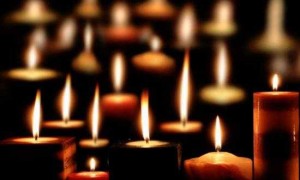Line of Fire
Finding Resilience in Times of Crisis
by Randall Amster
Living in Arizona for nearly two decades, and for more than half of that time in the central highlands region around Prescott, has  presented innumerable challenges and opportunities alike. Many will be familiar with Arizona’s haywire politics and the international controversies that have ensued. Those of us working on progressive causes here often find solace in the fact that — though the victories may be few — this is where the work needs to be done. I’m thankful to have been part of this ethos of engagement over the years, even as I’m preparing to head eastward and embrace new possibilities.
presented innumerable challenges and opportunities alike. Many will be familiar with Arizona’s haywire politics and the international controversies that have ensued. Those of us working on progressive causes here often find solace in the fact that — though the victories may be few — this is where the work needs to be done. I’m thankful to have been part of this ethos of engagement over the years, even as I’m preparing to head eastward and embrace new possibilities.
One thing that’s hard to convey to folks outside this area is the sense of shared struggle that is often masked by the ostensible divisiveness in our midst. Desert living can be harsh, and living systems survive best when their mutual interdependence is made paramount. With all of the tragedies that have befallen the state in recent years — from the Tucson shootings to the most recent loss of 19 elite firefighters — this nascent spirit of solidarity has been at play, even if at times almost imperceptibly so.
The worst travails of violence, wildfires, extreme heat, and severe drought can be found here, yet in many such moments there is a concomitant experience of being part of a larger whole. As is the case in myriad disaster situations, people more frequently discover forms of cooperation and commonality rather than exacerbating their tendencies toward competition and conflict. We needn’t overstate this — indeed, major differences of politics and practice will likely persist — but it’s important to recognize the growing realization that crises can in fact bring out our best qualities in many instances.
This resilient spirit will be put to the test more and more in the days ahead, as so-called “natural disasters†escalate in their frequency and intensity. The wildfires experienced here in central Arizona are emblematic, as no sooner was the massive Doce Fire contained (a scant few miles from my home) before the Yarnell Hill Fire flared up and claimed the lives of 19 brave souls. These dedicated people were fresh off saving our area from one inferno before being called to another — all underscored by the reality of being in a 20-year drought cycle and a calendar year that in particular has seen almost no rain.
This is the “new normal†of climate and weather extremes in this brave new world that we have wrought. Increasingly it appears that the possibility of forestalling these calamitous events is growing slimmer by the day. At the same time, our individual and collective capacities for resilience are becoming more germane, as we seek to live with an escalating array of crises and catastrophes. We shouldn’t abandon the mitigative project altogether; indeed, it turns out that many forms of adaptation also represent ways of being in the world that could countermand the roots of crisis if practiced widely. But the clock is rapidly ticking, and it’s hard to change a paradigm when we’re navigating perpetual disasters.
All of this sort of deeper rumination will have to wait for another day here in the central highlands of Arizona. It’s difficult to express the impact on this small community that will come from losing so many good people in this manner. No one here will escape the “six degrees of separation†that bind us all together. Sometimes it takes a tragedy to recognize and rekindled those bonds. And perhaps, in that, may the shared experience of confronting loss and acknowledging mutual grief serve to weave the threads of resilience tighter — for coping with the events of today, and likewise for those yet to come.
Randall Amster, J.D., Ph.D., is the Executive Director of the Peace and Justice Studies Association, and is the publisher and editor of New Clear Vision. Among his recent books are Anarchism Today (Praeger, 2012) and Lost in Space: The Criminalization, Globalization, and Urban Ecology of Homelessness (LFB Scholarly, 2008).Â
{Pickups: Truthout}

Thank you for this. I’ve been thinking of all of you in Prescott, realizing that even those who are safe right now are deeply affected.
1There are really only two words I have been able to say: heart break
2Hi Randall, This website, and your recent post, give me hope for the future. New Clear Vision gives me a place to turn to when things look bleak. So glad you are out there sharing your ideas and energy with the world. Prescott has been lucky to have you. Sad to hear you are heading east. Have thought of you often over the last year as I have been on an exciting and healing culinary journey into the world of vegans. Have had a whole-food plant-based diet for over a year now and love it!
3Thanks Peggy, much appreciated, and great to see what you’ve been up to at Birding Without Barriers. Very inspiring and informative, as I would expect — and so glad to hear about the vegan voyage! Leaving this area is hard, but change is good too. Wishing you all the best on your adventures…
4